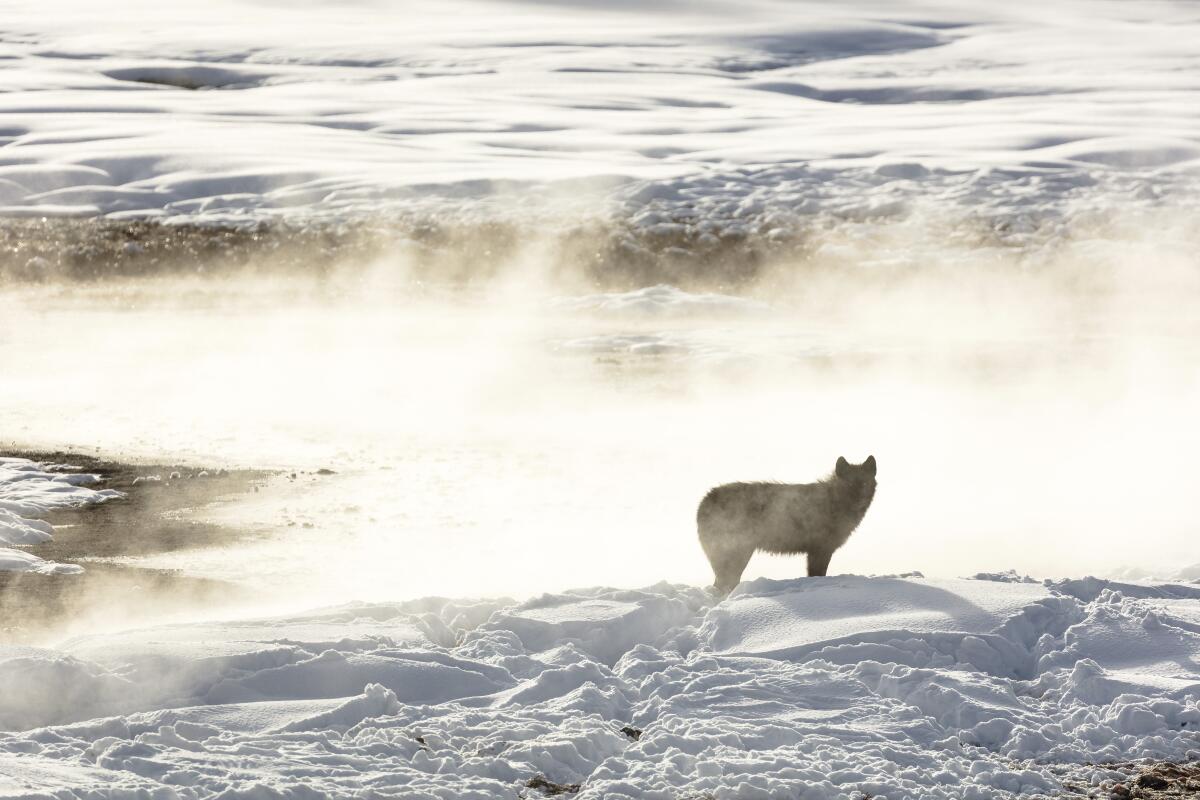Montana considers limits on wolf hunting after 23 from Yellowstone are killed

- Share via
BILLINGS, Mont. — Montana wildlife commissioners on Friday will consider if gray wolf hunting and trapping should continue in areas bordering Yellowstone National Park after 23 of the animals roamed from the park and were killed over the last several months.
Yellowstone officials have asked Montana to suspend hunting along the park border to avoid long-term harm to its world-renowned wolfpacks.
Eighteen of the animals have been killed in Montana, three in Wyoming and two in Idaho — the most in a season since the predators were restored to the U.S. northern Rocky Mountains more than 25 years ago after being widely decimated last century.
Urged by ranchers and hunters who want fewer wolves, Republican lawmakers in Montana and Idaho last year loosened hunting and trapping laws to allow night hunting, higher harvest limits and even aerial hunting in Idaho.
Montana also eliminated long-standing restrictions that had allowed only a few to be killed annually in hunting districts bordering Yellowstone.
Republican Gov. Greg Gianforte told Yellowstone Superintendent Cam Sholly in a recent letter that once a wolf exits the park and enters Montana it may be killed under state rules.
Those rules also allow the state’s Fish and Wildlife Commission to review hunting seasons if harvest levels reach a certain threshold. For southwestern Montana, including areas bordering the park, that threshold has nearly been met.
Lessons from Aldo Leopold’s historic wolf hunt
Commissioners on Friday will weigh whether to let hunting and trapping continue or make changes to a wolf season scheduled to run through March 15.
The number of wolves being killed statewide this season has been in line with recent years, Montana officials said. But the killings just outside Yellowstone have infuriated wildlife advocates and brought condemnation from some businesses that depend on park tourism.
One pack — the Phantom Lake Pack — is now considered “eliminated” after most or all of its members were killed over a two-month span beginning in October, according to the park.
More to Read
Sign up for Essential California
The most important California stories and recommendations in your inbox every morning.
You may occasionally receive promotional content from the Los Angeles Times.













